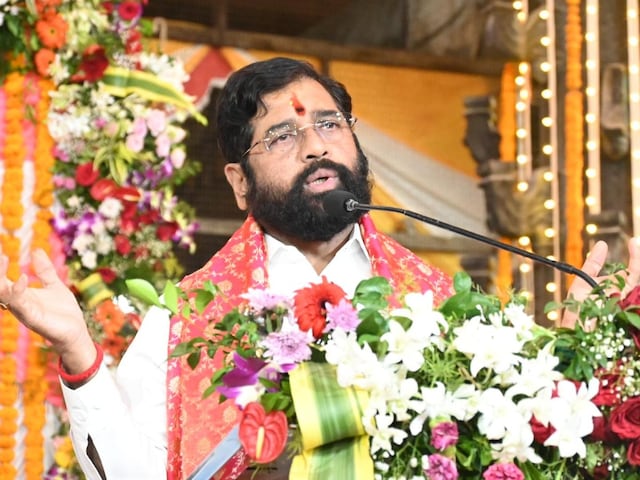
MSME grants are financial assistance provided by the government to micro, small, and medium enterprises (MSMEs). MSMEs are businesses that have an investment in plant and machinery of up to Rs. 50 crore and a turnover of up to Rs. 250 crore.

MSME grants are provided for a variety of purposes, including:
- Setting up new businesses
- Expanding existing businesses
- Modernizing existing businesses
- Adopting new technologies
- Promoting exports
- Developing new products and services
- Skilling and upskilling employees
The government of India offers a number of MSME grants through various ministries and departments. Some of the most popular MSME grants include:
- Prime Minister’s Employment Generation Programme (PMEGP)
- Micro Units Development and Refinance Agency (MUDRA) Loans
- Credit Guarantee Trust Fund for Micro and Small Enterprises (CGTMSE)
- Credit Linked Capital Subsidy Scheme (CLCSS)
- Science and Technology Entrepreneurship Park (STEP)
- National Small Industries Corporation (NSIC) Schemes
- Khadi and Village Industries Commission (KVIC) Schemes
MSME grants can be applied for through the websites of the respective ministries and departments. The application process for MSME grants varies depending on the scheme. However, most schemes require applicants to submit a business plan, financial projections, and other documents.
MSME grants can play a vital role in the growth and development of MSMEs. MSMEs can use the grant money to invest in new equipment, machinery, and technology, to expand their operations, and to develop new products and services.
Here are some of the benefits of MSME grants:
- Financial assistance: MSME grants can provide businesses with the financial assistance they need to start, grow, or expand their operations.
- Reduced risk: MSME grants can help businesses to reduce the risk associated with new investments.
- Job creation: MSME grants can help businesses to create new jobs and contribute to economic growth.
- Skill development: MSME grants can be used to fund the skilling and upskilling of employees.
- Technology adoption: MSME grants can be used to help businesses adopt new technologies.
If you are an MSME owner, I encourage you to explore the various MSME grant schemes that are available. MSME grants can help you to take your business to the next level.
How to Apply?
To apply for an MSME grant, you will need to visit the website of the ministry or department that is offering the grant. The application process will vary depending on the scheme, but most schemes will require you to submit the following documents:

- A completed application form
- A business plan
- Financial projections
- Copies of your business registration documents
- Copies of your identity and address proofs
Some schemes may also require you to submit additional documents, such as a copy of your patent or a copy of your export contract.
Once you have submitted all of the required documents, your application will be reviewed by a committee. If your application is approved, you will be awarded the grant.
Here are some tips for applying for an MSME grant:
- Make sure that you read the eligibility criteria carefully before applying.
- Submit a complete and well-written application form.
- Attach all of the required documents.
- Be prepared to present your business plan and financial projections to the committee.
If you have any questions about the application process, you can contact the ministry or department that is offering the grant.
Here are some additional tips for increasing your chances of getting your MSME grant application approved:
- Tailor your application to the specific grant scheme that you are applying for. Make sure that you highlight the aspects of your business that are relevant to the grant scheme.
- Write a clear and concise business plan. Your business plan should explain your business model, target market, and financial projections.
- Include realistic and achievable financial projections. Your financial projections should be based on sound assumptions and should be supported by evidence.
- Get your application reviewed by a professional. A professional can help you to identify any errors or omissions in your application.
How Much Can be Received ?
The amount of money that can be received from an MSME grant varies depending on the scheme. Some schemes offer grants of up to Rs. 25 lakh, while others offer grants of up to Rs. 1 crore.
The following are some examples of the amount of money that can be received from different MSME grant schemes:
- Prime Minister’s Employment Generation Programme (PMEGP): Up to Rs. 25 lakh
- Micro Units Development and Refinance Agency (MUDRA) Loans: Up to Rs. 10 lakh
- Credit Guarantee Trust Fund for Micro and Small Enterprises (CGTMSE): Up to Rs. 2 crore
- Credit Linked Capital Subsidy Scheme (CLCSS): Up to 15% of the project cost, with a maximum of Rs. 15 lakh
- Science and Technology Entrepreneurship Park (STEP): Up to Rs. 50 lakh
- National Small Industries Corporation (NSIC) Schemes: Up to Rs. 1 crore
- Khadi and Village Industries Commission (KVIC) Schemes: Up to Rs. 1 crore
The amount of money that you can receive from an MSME grant will also depend on your eligibility and the needs of your business. For example, if you are applying for a grant to start a new business, you will likely receive a smaller grant than if you are applying for a grant to expand an existing business.
To find out more about the amount of money that you can receive from a specific MSME grant scheme, you should visit the website of the ministry or department that is offering the grant.
Are Grants Loan ?
No, an MSME grant is not a loan. A grant is a financial assistance that does not need to be repaid. A loan, on the other hand, is a sum of money that is borrowed and must be repaid with interest.
MSME grants are provided by the government to help micro, small, and medium enterprises (MSMEs) to grow and develop. MSMEs can use the grant money to invest in new equipment, machinery, and technology, to expand their operations, and to develop new products and services.
There are a number of different MSME grant schemes available, and the amount of money that can be received varies depending on the scheme. Some MSME grant schemes also have specific eligibility criteria.
Which Websites are Useful for MSME Owners ?
Here are some useful websites for MSME owners:
- MSME India: This is the official website of the Ministry of Micro, Small and Medium Enterprises, Government of India. It provides information on a variety of MSME-related topics, including policies, schemes, and resources.
- Small Industries Development Bank of India (SIDBI): SIDBI is a financial institution that provides financial and non-financial assistance to MSMEs. Its website provides information on SIDBI’s products and services, as well as other resources for MSMEs.
- National Small Industries Corporation (NSIC): NSIC is a government enterprise that provides a variety of services to MSMEs, such as marketing, technology, and training. Its website provides information on NSIC’s services, as well as other resources for MSMEs.
- Khadi and Village Industries Commission (KVIC): KVIC is a government organization that promotes the development of khadi and village industries. Its website provides information on KVIC’s schemes and programs, as well as other resources for MSMEs.
- IndiaMART: IndiaMART is an online marketplace that connects buyers and sellers. It is a popular platform for MSMEs to sell their products and services.
- Justdial: Justdial is a local search engine that provides information on businesses and services in different cities. It is a useful resource for MSMEs to find new customers and suppliers.
- Google My Business: Google My Business is a free tool that allows businesses to manage their online presence on Google. It is a useful resource for MSMEs to improve their visibility and attract more customers.
- LinkedIn: LinkedIn is a professional networking platform that can be used by MSMEs to connect with potential customers, partners, and employees.
- Twitter: Twitter is a social media platform that can be used by MSMEs to promote their products and services, and to connect with customers.
- Facebook: Facebook is a social media platform that can be used by MSMEs to build a community around their brand and to promote their products and services.
These are just a few of the many websites that can be useful for MSME owners.

Who is eligible for MSME subsidy?
The eligibility criteria for MSME subsidies vary depending on the specific subsidy scheme. However, some general eligibility criteria include:
- The business must be registered with the Ministry of Micro, Small and Medium Enterprises (MSME) in India.
- The business must be involved in the manufacturing or service sector.
- The business must have an annual turnover of less than Rs. 250 crore.
- The business must have an investment in plant and machinery of less than Rs. 50 crore.
Some subsidy schemes also have additional eligibility criteria, such as the type of product or service that the business offers, the location of the business, and the category of entrepreneur (e.g., women, SC/ST, etc.).
To find out the specific eligibility criteria for a particular MSME subsidy scheme, you should visit the website of the ministry or department that is offering the subsidy.
Here are some examples of MSME subsidies and their eligibility criteria:
- Prime Minister’s Employment Generation Programme (PMEGP): This scheme is open to all individuals who are above 18 years of age and who are educated up to at least Class VIII. The project cost should be between Rs. 25,000 and Rs. 25 lakh.
- Micro Units Development and Refinance Agency (MUDRA) Loans: These loans are available to micro and small enterprises engaged in manufacturing, services, and trading activities. The loan amount ranges from Rs. 50,000 to Rs. 10 lakh.
- Credit Guarantee Trust Fund for Micro and Small Enterprises (CGTMSE): This scheme provides credit guarantee cover to micro and small enterprises for loans up to Rs. 2 crore.
- Credit Linked Capital Subsidy Scheme (CLCSS): This scheme provides capital subsidy to micro and small enterprises for the purchase of new plant and machinery. The subsidy amount is up to 15% of the project cost, with a maximum of Rs. 15 lakh.













